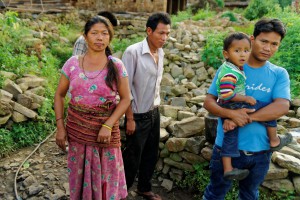Other disadvantaged or vulnerable groups

While all persons should be progressively covered by social protection systems, under human rights law, priority should be accorded to ensure the most disadvantaged and marginalised groups are protected by social security guarantees. As noted by the CESCR in General Comment 19, “all persons should be covered by the social security system, especially individuals belonging to the most disadvantaged and marginalised groups, without discrimination”.
In the same vein, the national social protection floor is described as a system to guarantee income security and access to basic services throughout the life cycle with particular attention to the most vulnerable and disadvantaged. ILO Recommendation No. 202 calls on States to ensure that national social security strategies “support for disadvantaged groups and people with special needs” (para. 16).
Human rights monitoring bodies often call for the extension of social security guarantees to vulnerable and disadvantaged groups such as orphans and street children, victims of trafficking, minorities and internally displaced persons.
Photo credit: “Faces of Nepal” by www.j-pics.info (CCBY 2.0 via Flickr).
Decreto 839 – Ley de Protección Integral de la Niñez y Adolescencia
Este Decreto establece la protección de la niñez y adolescencia. Es el deber del Estado, como a los padres y madres, adoptar todas las medidas necesarias para proteger a la familia (art. 7). En principio de corresponsabilidad, la garantía de los derechos de las niñas, niños y adolescentes corresponde a la familia, al Estado y […]
Social Protection Floors Recommendation, 2012 (No. 202)
Recommendation No. 202 is the first international instrument to offer guidance to countries to close social security gaps and progressively achieve universal protection through the establishment and maintenance of comprehensive social security systems. To this aim, the Recommendation calls for (1) the implementation, as a priority, of social protection floors (SPF) as a fundamental element […]
ILO Resource Package on “Extending Social Security to Workers in the Informal Economy”
The ILO policy resource package “Extending social security to workers in the informal economy: Lessons from international experience” serves as a reference for policy makers, workers’ and employers’ organizations and other stakeholders engaged in the development of social protection strategies, or the planning, design, implementation and monitoring of systems and schemes. This practical tool can help in […]
Tackling Social Exclusion
It is argued that social protection can reduce the extent to which marginalized people and groups are socially excluded. This paper investigates this thesis by considering what causes marginalization in the first place and what is needed to change the dynamics of exclusion. Using examples from Afghanistan, Bangladesh, India and Nepal, the paper assesses the […]
Guiding Principles on Extreme Poverty and Human Rights
These Principles are the first global policy guidelines focused specifically on the human rights of people living in poverty. They are intended for use by governments to ensure that public policies, including poverty eradication efforts, reach the poorest members of society, respect and uphold their rights, and take into account the significant social, cultural, economic and […]

